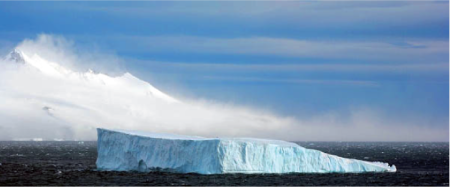| SEARCH |
-

Nov 17, 2015
Reflections on a three-decade legacy
The International Geosphere-Biosphere Programme (IGBP) will come to a close at t...
-
Nov 17, 2015
Use of and access to content on this website
Text and images produced by IGBP in house are free to use with appropriate credi...
-
Nov 12, 2015
Bella Gaia performance and panel discussion to mark IGBP's closure
A musical performance by Bella Gaia will celebrate the achievements and legacy o...
-

Towards Future Earth:
evolution or revolution?
During its three decades of existence, the International Geosphere-Biosphere Pro...
-
A personal note on IGBP and the social sciences
Humans are an integral component of the Earth system as conceptualised by IGBP. João Morais recalls key milestones in IGBP’s engagement with the social sciences and offers some words of advice for Future Earth.
-
IGBP and Earth observation:
a co-evolution
The iconic images of Earth beamed back by the earliest spacecraft helped to galvanise interest in our planet’s environment. The subsequent evolution and development of satellites for Earth observation has been intricately linked with that of IGBP and other global-change research programmes, write Jack Kaye and Cat Downy .
-
Deltas at risk
Around 500 million people worldwide live on deltas, but many of the world's deltas are sinking due ...
-
Climate change: the state of the science
A new data visualization released on the first day of the plenary negotiations at the UNFCCC’s clima...
-
Climate Change:
the State of the Science
Videos now online from the Stockholm public forum to mark the launch of the IPCC's climate report, 2...
Supply and Flux of Sediment Along Hydrological Pathways: Anthropogenic Influences at the Global Scale
Syvitski J P M (ed)

It has become increasingly difficult to assess the impact of changes in the sediment flux to the coastal zone because of the conflicting impacts of humans. Globally, soil erosion is accelerating (e.g., deforestation, some agriculture practices), while at the same time sediment flux to the coastal zone is globally decelerating (e.g., water diversion schemes, dams). Reduced loads delivered to the coastal zone result in an accelerated coastal erosion and a decrease in habitat. The reduction of the seasonal flood waves also means that sediment is dispersed over smaller areas of the continental margin. One of the great challenges facing hydrologists, with regard to our understanding of anthropogenic versus climate-change impacts on the hydrological cycle, is the quality and duration coverage of hydrological data, particularly on pristine rivers. For many rivers, the length of hydrological coverage is measured in years rather than decades, with no rivers with reliable observations across centuries. In other words, if a river's discharge is monitored during periods where the impacts of humans or nature produce a long-term trend, then the return-interval concept for floods and droughts, for instance, becomes meaningless. In addition, river systems are conditioned by events that are largely prehistorical. Forensic studies of paleoriver systems provide us with some ability to assess and discern the impacts of humans versus climate.

IGBP closed at the end of 2015. This website is no longer updated.
-

Global Change Magazine No. 84
This final issue of the magazine takes stock of IGBP’s scientific and institutional accomplishments as well as its contributions to policy and capacity building. It features interviews of several past...
-

Global Change Magazine No. 83
This issue features a special section on carbon. You can read about peak greenhouse-gas emissions in China, the mitigation of black carbon emissions and the effect of the 2010-2011 La Niña event on gl...
-
INTERGOVERNMENTAL PANEL ON CLIMATE CHANGE:
How green is my future?
UN panel foresees big growth in renewable energy, but policies will dictate just how big.
-
UK:
'The Anthropocene: a new epoch of geological time?'
Royal Society, Philosphical Transactions A




















